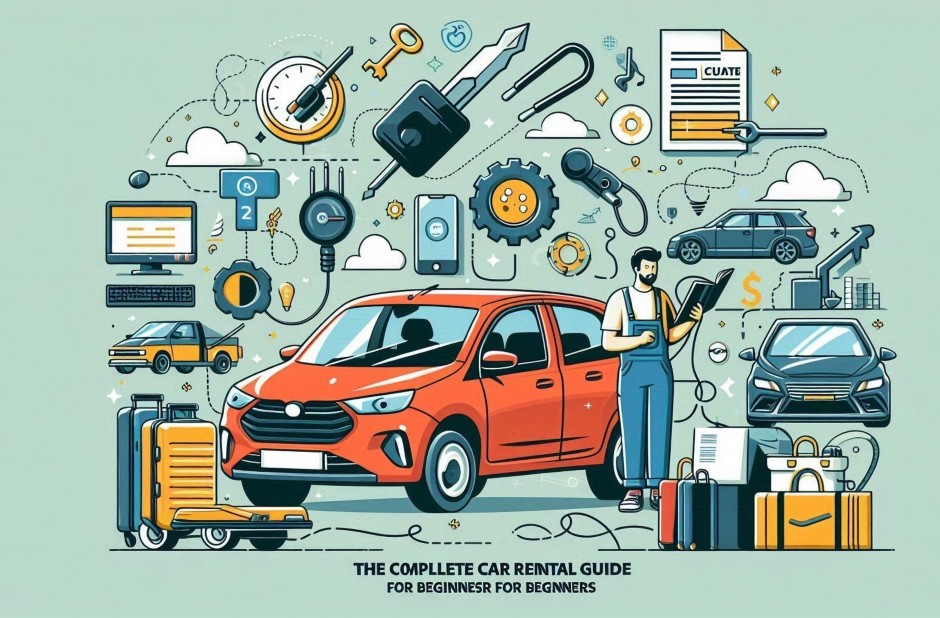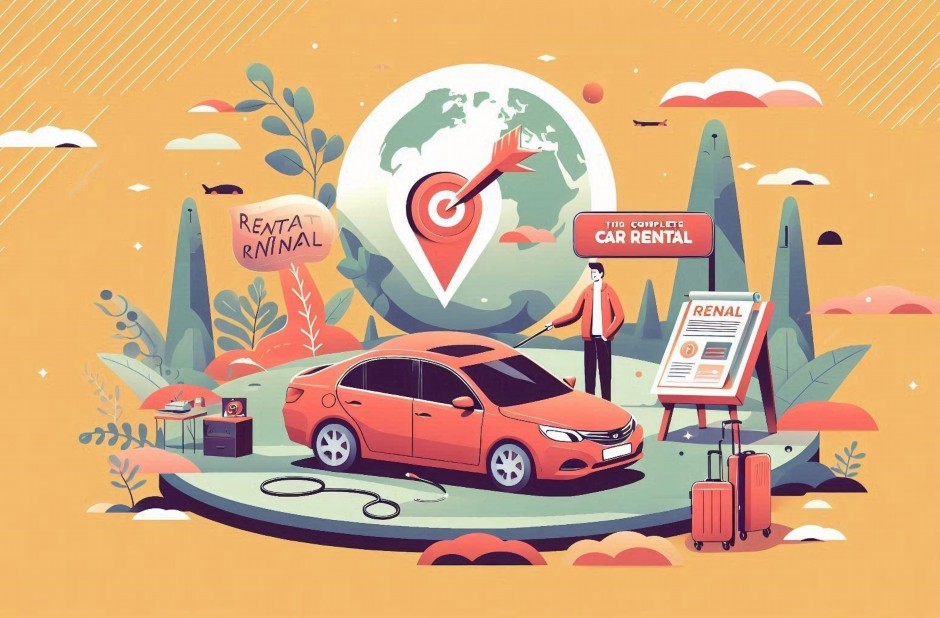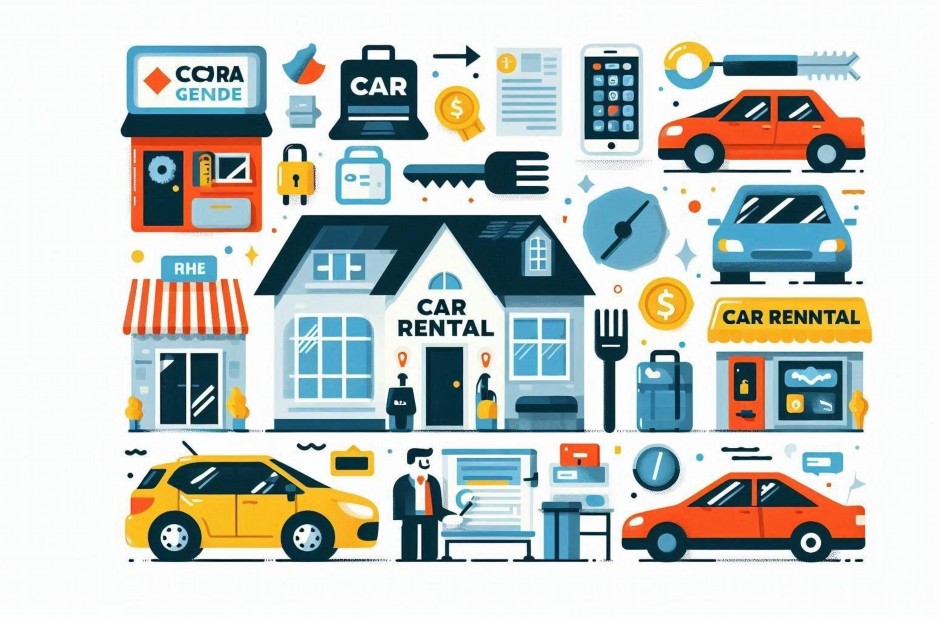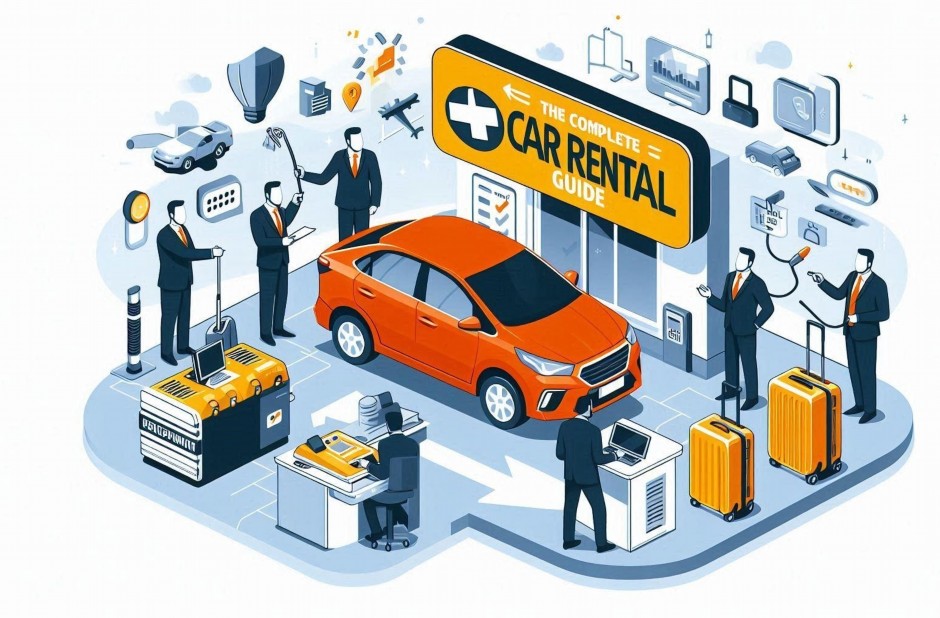
Renting a car can open up a world of convenience and flexibility, whether you're traveling for business, going on vacation, or simply need a temporary vehicle. But for first-timers, the process can be confusing and even intimidating. From selecting the right rental company and vehicle to understanding insurance options, fuel policies, and potential fees, there are a lot of moving parts. The good news is that with the right preparation and a clear understanding of the steps involved, renting a car doesn’t have to be a stressful experience. This guide will walk you through everything you need to know to confidently rent a car and avoid common pitfalls.
Start by Choosing the Right Rental Company
Not all rental companies are created equal. Some focus on luxury vehicles, while others specialize in budget options. Major companies like Enterprise, Hertz, Avis, and Budget offer a wide range of cars and are available at most airports and city locations. While these companies are typically reliable, they can sometimes be more expensive than smaller or local rental services. On the other hand, local agencies might offer lower prices but may not have the same level of service or insurance coverage. Before booking, read reviews and compare rates through aggregator websites like Kayak, Expedia, or Rentalcars.com. Always check for hidden fees, and make sure the company has transparent pricing policies.
Understand Your Rental Needs
Think carefully about what kind of car you’ll need. Are you driving long distances? A fuel-efficient sedan or hybrid may be best. Traveling with family or lots of luggage? Consider a spacious SUV or minivan. For urban areas, a compact car can make parking and maneuvering easier. Consider the terrain as well—if you’re heading to a mountainous area or snowy climate, all-wheel drive might be necessary. Also, think about whether you’ll need GPS, car seats, or other add-ons. Identifying your needs in advance ensures you won’t be talked into unnecessary upgrades at the counter.
Book Early and Look for Deals
Car rental prices can fluctuate dramatically depending on season, location, and demand. Booking in advance not only gives you more vehicle choices but often helps you lock in better rates. Look for discounts through memberships like AAA, AARP, or credit card perks. Some airlines and hotel loyalty programs also offer rental car partnerships. Be cautious with deals that seem too good to be true—make sure they don’t come with restrictive fine print or require large deposits. If possible, choose a reservation that includes free cancellation in case your plans change.

Know What Documentation You’ll Need
Before arriving at the rental counter, ensure you have all necessary documents. In most cases, you’ll need a valid driver’s license, a credit card in your name, and a booking confirmation. Some companies accept debit cards, but they may perform a credit check or require additional identification. International travelers might need an International Driving Permit (IDP) in addition to their home country license, depending on local laws. Check these requirements beforehand to avoid any surprises when picking up your vehicle.
Understand Rental Car Insurance
Insurance is one of the most confusing aspects of renting a car. Rental companies will typically offer several types of coverage: Collision Damage Waiver (CDW), liability insurance, personal accident insurance, and theft protection. These can quickly add up, sometimes doubling the cost of your rental. Before agreeing, check whether your personal car insurance or credit card offers coverage for rentals—many do, but policies vary. For example, some credit cards only cover domestic rentals or require you to decline the rental company's coverage. Be sure to read the fine print and confirm coverage with your insurer or card provider before you travel.
Inspect the Car Before Driving Off
Once you receive the keys, do a thorough walk-around inspection of the vehicle. Look for any scratches, dents, or other damage, and ensure everything is documented in writing or via photo/video. Check the interior for cleanliness and that all electronics (lights, wipers, AC, radio) are working properly. If you skip this step, you risk being held responsible for pre-existing damage upon return. Don’t hesitate to ask for a different vehicle if you’re uncomfortable with the condition of the one provided. Transparency at this stage can save you money and stress later on.

Know the Fuel Policy
Fuel policies vary between rental companies. The most common is the “full-to-full” policy—where you receive the car with a full tank and are expected to return it full. This is the most cost-effective option, as refueling at the rental location often comes with a premium price. Other options include pre-purchasing a tank of gas or returning the vehicle without refueling (for a fee). Make sure you understand the policy you’re agreeing to and plan accordingly. Keep your fuel receipt in case there’s a dispute upon return.
Pay Attention to Mileage Limits
Some rentals include unlimited mileage, while others have daily mileage caps—especially for specialty vehicles or discounted rates. If you exceed these limits, you could face high per-mile charges. Always verify whether your rental has any mileage restrictions, especially if you plan on driving long distances. Clarify the terms in writing and keep an eye on the odometer if you're nearing the limit. Avoiding surprise charges starts with reading the fine print and asking the right questions.
Be Aware of Extra Fees
In addition to base rental rates and insurance, you may encounter a range of extra fees. These can include airport surcharges, additional driver fees, underage driver fees (typically for drivers under 25), GPS rentals, toll passes, and late return penalties. If you plan to return the car to a different location, a one-way fee may also apply. Ask the rental agent to explain all fees in advance, and get a copy of your rental agreement with every charge clearly outlined. Taking the time to understand these costs can help you stick to your budget and avoid financial surprises.
Returning the Car
When returning your vehicle, allow extra time in case of long lines or final inspections. Be sure to remove all personal belongings and take photos of the car's exterior and fuel gauge. If possible, have an agent inspect the vehicle with you and sign off that it was returned in good condition. Get a printed receipt showing the final charges and fuel level. If you're dropping off the car after hours, follow the company’s after-hours procedure precisely—this often includes parking in a designated spot and placing the keys in a dropbox. Retain any documents or photos for at least a few weeks, in case disputes arise later.

Common Mistakes to Avoid
First-time renters often make avoidable mistakes that lead to unnecessary stress or expenses. Don’t forget to check your insurance coverage in advance. Avoid skipping the pre-rental inspection. Be wary of aggressive upselling at the rental counter—stick to what you actually need. Always return the car on time and with the agreed fuel level. And lastly, read the contract before signing anything. Taking a few extra minutes to double-check everything will help you feel in control and ensure a smoother rental experience.
Conclusion
Renting a car as a beginner may seem daunting at first, but with a clear understanding of the process and a few smart strategies, you can navigate it like a pro. From choosing the right vehicle and insurance to inspecting the car and avoiding hidden fees, each step plays a role in shaping a successful rental experience. The more informed and prepared you are, the more confident and stress-free your trip will be. Whether you’re driving across the country or just need a car for a weekend getaway, following this guide will help you make the most of your rental and travel with ease.
